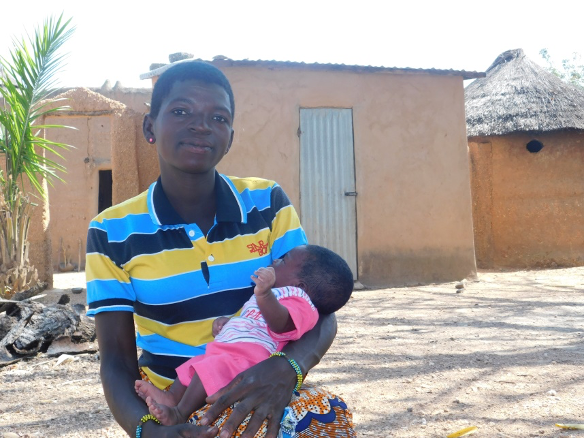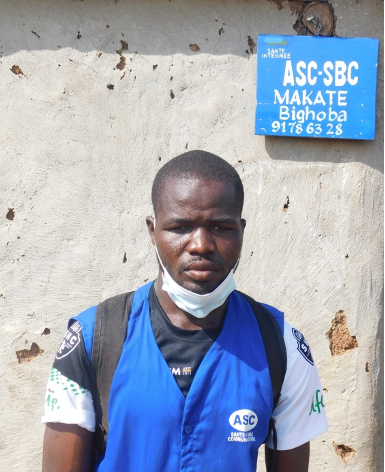
Teme Kouakou, a community member in the Kéran district, noticed that her neighbors were distressed. When she went over to check on them, she saw that their son was very sick. He was vomiting and felt weak. The parents decided not to go to the health center because they were worried that they didn’t have enough money. So Teme recommended that the family call for their Community Health Worker (CHW), Moutiete Kpakou. Moutiete had just undergone training with Integrate Health where she learned how to deliver basic care to her neighbors. She quickly arrived at Teme’s neighbor’s house with a backpack full of supplies that equipped her to perform a full pediatric consultation in their home. When the family asked about the cost, they were relieved to hear it was free of charge. Teme felt reassured. “That evening, I noticed that their son was feeling much better and he could even eat.” For her and her neighbors, the arrival of Integrate Health as lifechanging.
Before the launch of the Integrated Primary Care Program (IPCP) in the Kéran district, the community members had few healthcare options. Families were either forced to travel miles to a health center and face high costs of care or they turned to other forms of medicine, such as herbal medicine from a traditional healer or just stayed at home. Many families in the rural Kéran district, and in rural communities throughout Togo, struggle to provide the financial means to ensure access to quality healthcare, and long distances create insurmountable obstacles for many.
Integrate Health (IH), in collaboration with the Ministry of Health (MOH), is working to make primary care accessible to all. Integrated with improved care in public clinics, CHWs provide a bridge to healthcare for many rural communities by bringing essential health services to women and children in their homes.
IH-supported CHWs are trained, equipped, supervised, and salaried healthcare workers who provide care to pregnant women and children under-five free of charge. IH, together with the MOH, regional health authorities, and community’s leaders, recruit CHWs to provide a package of services including integrated management of childhood illness, maternal health, family planning, and referrals for complicated cases. CHWs work under the direct responsibility of government health centers and dedicated supervisors.
Because many IH-supported CHWs work in rural areas, this means that sometimes they must go the extra mile to deliver care. Bighoba Makate visits at least 15 households every day, walking and biking around two kilometers between houses. Two to three times a week, Bighoba visits 50 households across a river in his community. Crossing the river can be challenging, especially during the raining season when the river is often flooded. But for Bighoba, and many CHWs who face similar circumstances, his commitment to increasing access to healthcare for his neighbors outweighs the challenges.

Throughout the COVID-19 pandemic, IH-supported CHWs have been essential in bringing care to rural communities in northern Togo. For example, many IH-supported communities lack access to critical information about the COVID-19 pandemic. From the beginning of the pandemic, community members have turned to IH CHWs to get information about how to protect themselves and their families. CHWs have provided information about prevention measures, and they show by example by always wearing their masks, face shields, and by sitting six feet apart from the families they visit. They have continued to provide essential services for families, despite fear of the pandemic.
CHWs are essential to providing healthcare in some of the hardest to reach areas. As IH continues to support the Togolese MOH in achieving their Universal Health Coverage objectives, we look forward to demonstrating the essential role that CHWs play in ensuring that primary healthcare is accessible to all.
